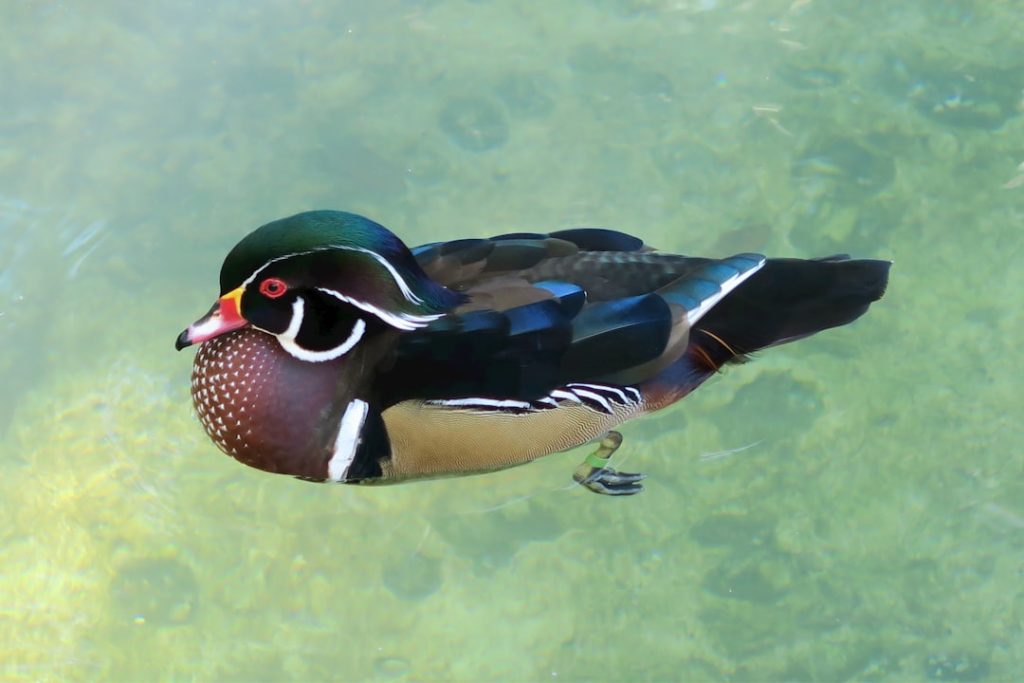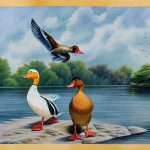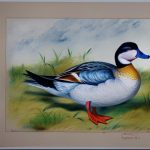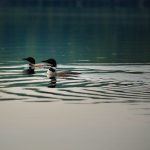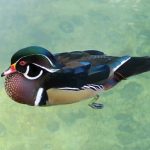Ducks are a popular choice for farming, whether for their eggs, meat, or simply as ornamental birds. There are numerous duck breeds to choose from, each with its own unique characteristics and purposes. From the popular Pekin and Mallard ducks to the rare and exotic breeds like the Cayuga and Indian Runner, there is a duck breed to suit every farmer’s needs. When choosing a duck breed, it’s important to consider factors such as egg or meat production, temperament, and environmental adaptability. Whether you’re a seasoned duck farmer or just starting out, understanding the different duck breeds available can help you make an informed decision for your farm.
Table of Contents
Key Takeaways
- There are many different duck breeds, each with unique characteristics and purposes.
- Popular duck breeds for farming include the Pekin, Khaki Campbell, and Indian Runner.
- Rare and exotic duck breeds such as the Silver Appleyard and Cayuga can add diversity to a farm.
- Duck breeds known for egg production include the White Crested, Welsh Harlequin, and Golden 300.
- Muscovy, Pekin, and Rouen ducks are popular choices for meat production due to their size and meat quality.
- Ornamental duck breeds like the Mandarin and Wood duck are prized for their beauty and unique markings.
- When choosing a duck breed, consider your specific needs and goals for egg, meat, or ornamental purposes.
Popular Duck Breeds for Farming
Pekin ducks are one of the most popular breeds for farming due to their fast growth rate and excellent meat production. They have a white plumage and orange beak, making them easily recognizable. Pekin ducks are known for their friendly and docile nature, making them easy to handle and manage on the farm. Another popular breed is the Mallard duck, which is known for its beautiful iridescent green head and vibrant plumage. Mallards are excellent foragers and can thrive in a variety of environments, making them a versatile choice for farming. They are also good egg layers, making them a dual-purpose breed for both meat and egg production. Other popular duck breeds for farming include the Khaki Campbell, Rouen, and Muscovy ducks, each with their own unique characteristics and benefits for farmers.
Rare and Exotic Duck Breeds
For farmers looking to add a unique touch to their flock, rare and exotic duck breeds can be an exciting option. The Cayuga duck is a rare breed known for its stunning iridescent green-black plumage that appears almost black in certain lighting. They are excellent foragers and can adapt well to free-range environments. Indian Runner ducks are another exotic breed known for their upright stance and distinctive habit of running rather than waddling. They are excellent egg layers and can be a colorful addition to any farm. The Silver Appleyard duck is a rare breed that is prized for its dual-purpose nature, excelling in both meat and egg production. These rare and exotic duck breeds can add diversity and interest to a farm while also providing valuable resources such as eggs and meat.
Duck Breeds for Egg Production
When it comes to egg production, certain duck breeds stand out for their prolific laying abilities. The Khaki Campbell duck is renowned for its exceptional egg-laying capabilities, with some hens laying up to 300 eggs per year. They are also known for their calm temperament, making them easy to manage on the farm. The Runner duck is another breed that excels in egg production, with some hens laying up to 200 eggs per year. Their upright stance and active foraging behavior make them an interesting addition to any farm. The Welsh Harlequin is a breed known for its high egg production and beautiful plumage, making it a popular choice for farmers looking to add both beauty and productivity to their flock.
Duck Breeds for Meat Production
For farmers focused on meat production, certain duck breeds are particularly well-suited for this purpose. The Pekin duck is one of the most popular choices for meat production due to its fast growth rate and high meat yield. They are also known for their calm temperament, making them easy to handle and manage on the farm. Muscovy ducks are another excellent choice for meat production, as they have a lean and flavorful meat that is highly sought after by chefs and consumers alike. Muscovy ducks are also known for their ability to forage and thrive in free-range environments, making them a sustainable choice for meat production. The Rouen duck is a large breed that is also well-suited for meat production, with a plump body and tender meat that is prized by many.
Duck Breeds for Ornamental Purposes

For farmers looking to add beauty and diversity to their flock, ornamental duck breeds can be an appealing option. The Mandarin duck is one of the most stunning ornamental breeds, with its vibrant plumage and intricate patterns. They are known for their shy nature and require a calm and peaceful environment to thrive. The Call duck is another popular ornamental breed, known for its small size and distinctive quacking voice. Call ducks come in a variety of colors, making them a colorful addition to any farm or pond. The Swedish Blue duck is prized for its striking blue plumage and calm temperament, making it an attractive choice for ornamental purposes.
Choosing the Right Duck Breed for Your Needs
When choosing a duck breed for your farm, it’s important to consider your specific needs and goals. If you’re focused on egg production, breeds like the Khaki Campbell or Runner ducks may be the best choice for you. For meat production, breeds like the Pekin or Muscovy ducks are excellent options due to their fast growth rate and high meat yield. If you’re looking to add beauty and diversity to your flock, ornamental breeds like the Mandarin or Call ducks can be an exciting addition to your farm. Consider factors such as temperament, environmental adaptability, and productivity when choosing a duck breed, and don’t be afraid to explore rare and exotic breeds to add diversity to your farm. With careful consideration and research, you can choose the right duck breed that suits your specific needs and goals as a farmer.
If you’re interested in learning more about different duck breeds, be sure to check out Poultry Wizard’s article on the best duck breeds for your farm. This comprehensive guide provides valuable insights into various duck breeds and their characteristics. And if you’re considering building a coop for your ducks, Poultry Wizard also offers helpful articles on farmhouse chicken coops, the flooring of chicken coops, and tips for building a chicken coop in Chester, SC. For more information on creating a comfortable and functional living space for your ducks, visit Poultry Wizard.
FAQs
What are some common duck breeds?
Some common duck breeds include the Pekin, Mallard, Rouen, Khaki Campbell, and Muscovy.
What are the characteristics of different duck breeds?
Different duck breeds have varying characteristics such as size, color, and temperament. For example, Pekin ducks are large, white ducks with a calm temperament, while Mallard ducks are smaller, colorful ducks known for their wild nature.
What are the purposes of raising different duck breeds?
Different duck breeds are raised for various purposes such as meat production, egg laying, pest control, and ornamental purposes. For example, Pekin ducks are commonly raised for meat production, while Khaki Campbell ducks are known for their high egg production.
What should I consider when choosing a duck breed to raise?
When choosing a duck breed to raise, consider factors such as your purpose for raising ducks, the climate in your area, the space available for raising ducks, and your level of experience in duck farming.
Are there any rare or endangered duck breeds?
Yes, there are several rare or endangered duck breeds, such as the Silver Appleyard, Saxony, and Aylesbury. Conservation efforts are being made to preserve these breeds.
Meet Walter, the feathered-friend fanatic of Florida! Nestled in the sunshine state, Walter struts through life with his feathered companions, clucking his way to happiness. With a coop that’s fancier than a five-star hotel, he’s the Don Juan of the chicken world. When he’s not teaching his hens to do the cha-cha, you’ll find him in a heated debate with his prized rooster, Sir Clucks-a-Lot. Walter’s poultry passion is no yolk; he’s the sunny-side-up guy you never knew you needed in your flock of friends!

